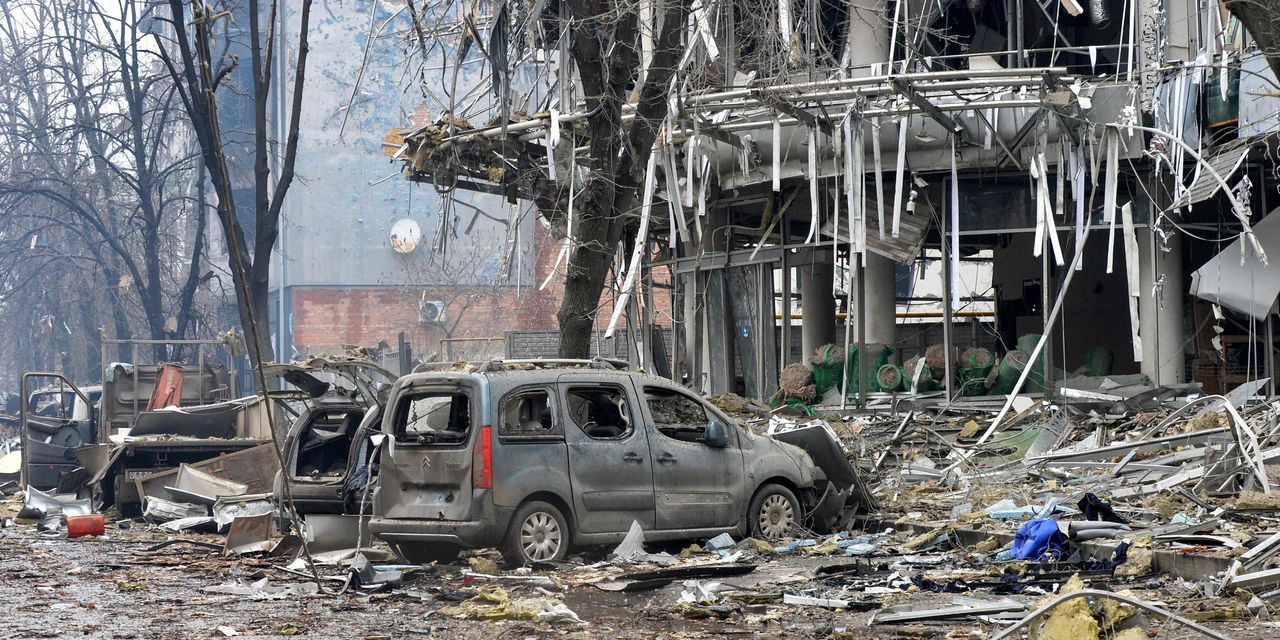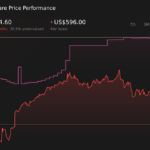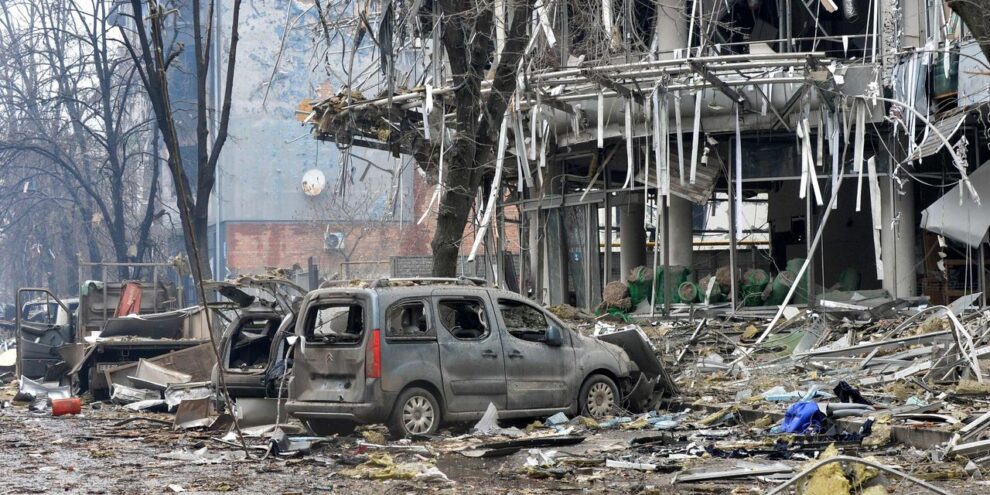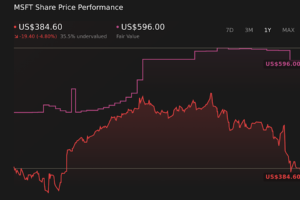
European stocks were under pressure on Friday and facing their biggest weekly loss since late 2020, as investors nervously watched the intensifying war in Ukraine, which resulted in a fire at the region’s biggest power plant.
The Stoxx Europe 600 index fell 2.5% to 426.37, and has lost more than 5% since Russia’s invasion of Ukraine began more than a week ago. The index is facing a weekly decline of 5.1%, which would be the biggest such loss since October 2020 if it holds.
The German DAX DAX, -3.07% and French CAC 40 PX1, -3.37% were each down more than 3% each, while the FTSE 100 index UKX, -3.31% was off 2.6%. The DAX was set for a drop of more than 8% this week, which could put it on its worst weekly decline since March 2020.
The euro EURUSD, -1.22% slid 0.4% as investors flocked to the U.S. dollar DXY, +0.85%, gold GC00, +0.45% and government bonds. The yield on the 10-year bund TMBMKDE-10Y, -0.023% fell 3 basis points to negative 0.54%.
Already nervous investors woke to news of a fire at Europe’s biggest nuclear plant in Ukraine, as fighting raged for a ninth day.
According to Associated Press reports, the nuclear power plant in the southern Ukrainian city of Enerhodar had been shelled by Russian troops, sparking a fire at the facility. The plant reportedly has six reactors, and three had been offline before the attack.
Ukrainian state emergency services later said on Facebook FB, -2.47% that the fire had been in a training building and had been contained. The regional military service said early measurements on Friday showed radiation was “unchanged” and posing no danger to the population. The power plant is reportedly now controlled by Russian troops.
“The incident raised concerns that the conflict could become even more dangerous, even after both sides have agreed to set up humanitarian corridors,” said Charalambos Pissouros, head of research at JFD, in a note to clients.
“We stick to our guns and we repeat for the umpteenth time that it is too early to assume that the worst is over. Even following the aforementioned agreement, Russian forces continued surrounding and bombarding Ukrainian cities, with the conflict entering its second week,” said Pissouros.
“Thus, we still believe that the path of least resistance for equities, the euro, and the pound, is to the downside,” with commodities and safe havens such as the yen and franc staying supported, he said.
U.S. stock futures ES00, -0.84% remained deep in the red, though off overnight lows, following the nuclear plant fire, with nonfarm payroll data coming ahead of the open.
Nearly every sector in Europe was in the red, with heavily weighted energy names such as Shell SHEL, -4.23% SHEL, -5.99%, TotalEnergies TTE, -3.36% TTE, -4.41% and BP BP, -4.55% BP, -3.85%, along with banking giant HSBC HSBC, -2.35% HSBA, -4.60% all down by 3% each. That’s as oil prices remained elevated Friday.
German stock exchange operator Deutsche Börse DB1, -1.82% 63DA, -2.76% said late Thursday that Hannover Rueck and Daimler Truck Holding will enter the DAX index on March 21.
Airlines and auto makers were also hard hit, with Deutsche Lufthansa LHA, -4.78% and Wizz Air WIZZ, -7.33% falling more than 7% each and Volkswagen VOW3, -5.03% down 5%.
Russia’s stock market was shut for a fifth day on Friday, the central bank announced. The country has been hammered by sanctions as punishment for its invasion of Ukraine. The London Stock Exchange on Friday announced the suspension of more Russian companies with secondary listings.








